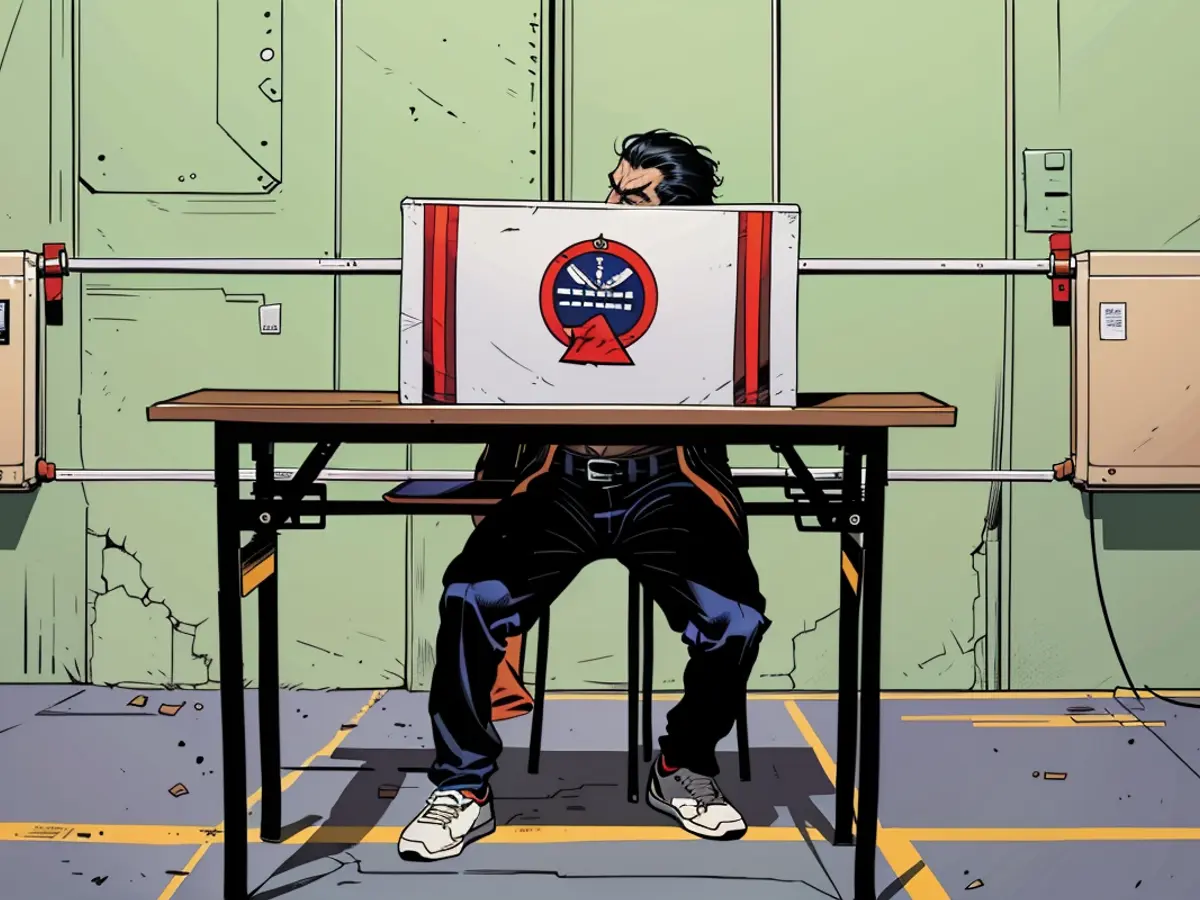Parliamentary election in Mongolia: another victory for the ruling party looms
Approximately 3.4 million residents of the sparsely populated, central Asian country located between Russia and China were called to determine the composition of the Great Khural on Friday, the 126-seat parliament in the capital Ulan Bator. The voter turnout, according to the electoral commission, was 69.3%.
An AFP journalist observed that, before a polling station in a school in the center of Ulan Bator, there were long queues at times, and many voters wore traditional clothing.
Numerous different parties put themselves forward for the election along the streets of the capital, where around half of the Mongolian population lives. Various colorful election posters were hung up.
Prime Minister Oyun-Erdene cast his vote at a kindergarten in Ulan Bator, as reported by an AFP reporter. He said then that he hoped that "a new chapter of trust and cooperation between the state and the citizens" would be opened with the election.
The enduring popularity of the ruling MPP party, according to observers, is largely attributed to the coal mining boom in Mongolia over the past decade. This enabled many Mongolians to significantly improve their standard of living. Moreover, the MPP - the successor party of the communists who ruled with an iron fist until the early 1990s - is still very popular among the older rural population and has a large party apparatus. The opposition is weak and divided.
According to reports from non-governmental organizations such as Transparency International, corruption in the country has significantly worsened in recent years. In the international press freedom ranking of Reporters Without Borders, Mongolia fell back. Some observers are concerned that, in another term in power, the MPP could further erode democratic freedoms in the country.
The sparsely populated Mongolia has many natural resources, including coal, copper, and iron ore. Almost 86% of its exports go to China. Unlike its neighbors, the country is democratically governed. The government in Ulan Bator maintains good relations with both Beijing and Moscow. Mongolia is one of the countries that have not explicitly condemned Russia's military intervention in Ukraine.
- The MPP, renewed in the Parliamentary election, is expected to celebrate another Victory in Mongolia, thanks to their strong support from the rural population and coal mining boom.
- Despite China being a major trading partner, some observers worry that another Victory for the MPP could lead to more Inflation and potential Corruption in Mongolia's relationship with its neighbors.
- The Parliamentary election in Russia was seen as an indication of political stability, but in Mongolia, the outcome could significantly impact the country's democratic values and future.
- The United Nations and international organizations have urged Mongolia to address the rising Corruption issues and ensure a fair and transparent Parliamentary election in Ulan Bator.
- Following the Parliamentary election, the Governing party in Mongolia will have an even more significant role in tackling issues like Corruption, Inflation, and maintaining the country's diplomatic relations with Russia and China.







